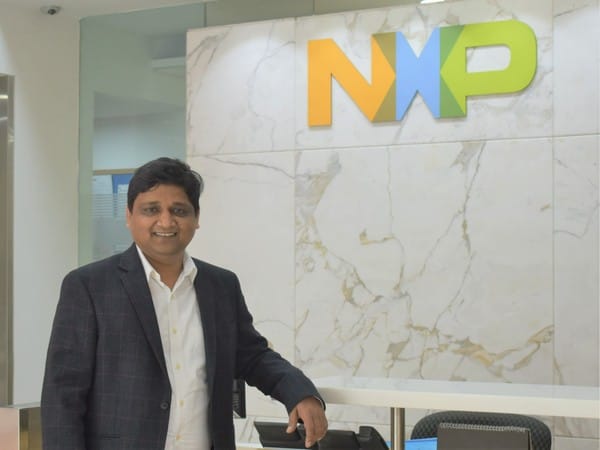New Delhi [India], May 23 (ANI): India has a great possibility to emerge as a sizable player in the manufacturing of semiconductor products, said Hitesh Garg, India Country Manager of Dutch-headquartered NXP Semiconductors, adding that the company is currently seeking to aggressively develop and enhance India’s semiconductor capabilities.
Garg also believes that the diversification of electronics manufacturing outside China as part of the China+1 strategy can help India in becoming a semiconductor export hub, besides reducing India’s import dependency.
“With a global emphasis on expanding semiconductor supply chains and reducing reliance on a single country, the world turns its gaze towards India to lead the highly acclaimed ‘China plus one strategy and the work in that direction has already been started,” Garg told ANI.
The company currently employs about 4,000 engineers across its sites in India — Noida, Bengaluru, Hyderabad, and Pune.
“India has a great possibility to emerge as a sizable player in electronics and semiconductor products manufacturing as part of the China-plus-one diversification strategy.”
The Indian government is pretty focused on its objective of building the overall semiconductor ecosystem and ensuring that in turn catalyses India’s rapidly expanding electronics manufacturing and innovation ecosystem. It has also approved the Semicon India programme with a total outlay of Rs 76,000 crore for the development of the semiconductor and display manufacturing ecosystem.
The fabless companies in India largely deal with the designing and fabrication part is taken care in other geographies. Fabless chip makers are companies that produce semiconductors for use in various types of electronics.
According to NXP Semiconductors, the government’s Production-Linked Incentive (PLI) scheme is expected to fuel the overall semiconductor ecosystem in India as it will help global companies move their manufacturing and large parts of their supply chain to India.
Globally, NXP currently owns six front-end manufacturing sites and four assembly and test sites. Built on more than 60 years of combined experience and expertise, the company has approximately 34,500 team members in more than 30 countries and posted revenue of USD 13.21 billion in 2022.
“India with its democratic values and the positive global image becomes a natural choice for most of the countries to invest in,” Garg said, adding that capacity addition in the manufacturing sector will take India’s economy towards USD 5 trillion by the year 2026-2027.
The semiconductor market is anticipated to reach USD 1 trillion, increasing at a CAGR of 7 per cent by 2030.
Besides focusing on R&D, the company said it is helping cultivate India’s next generation of skilled workers through industry-academia partnership — where the company connects with university staff and students to share a technical overview of contemporary topics of interest in the semiconductor, and electronics ecosystem.
“We have signed MoUs with top universities like IISc Bangalore, IIIT Hyderabad, IIT Madras, IIT Guwahati, MIT Manipal, Thapar, and SIT Tumkur etc. to provide them lab infrastructure for growth and develop their engineering and design skills. We are also working to spark STEM skills in young students, currently in grades 6-12 standard, through an event called the Young Innovator Design Challenge,” Garg said.
On being asked about its expansion plans in India, Garg, without getting into details, said NXP is on a growth path and it will continue to build R&D strength in line with business demands.
Notably, NXP’s President and Chief Executive Officer Kurt Sievers in March this year met Prime Minister Narendra Modi, and their discussions largely centred around emerging semiconductors technology and its potential in India.
NXP’s India head Garg was also part of that NXP delegation. Garg said they discussed NXP’s vision to increase its R&D capacity in India and how it is working on absorbing more Indian engineers into its fold.
“With one-third of the whole NXP R& D staff consisting of Indian engineers, we are working towards increasing our headcount in the country.”
“Kurt also said that he will urge NXP’s partners to set up fab in India. He mentioned industrial automation and healthcare as the two emerging industries that had the potential for the company, in addition to the automotive sector, where NXP is heavily invested,” Garg added. (ANI)
This report is auto-generated from ANI news service. ThePrint holds no responsibility for its content.






